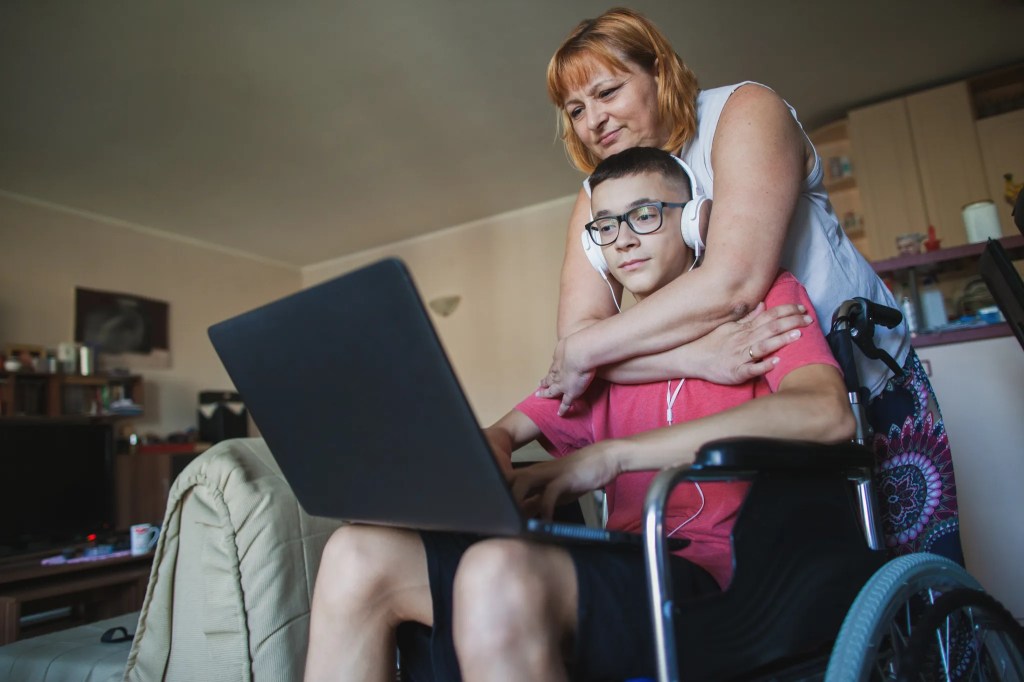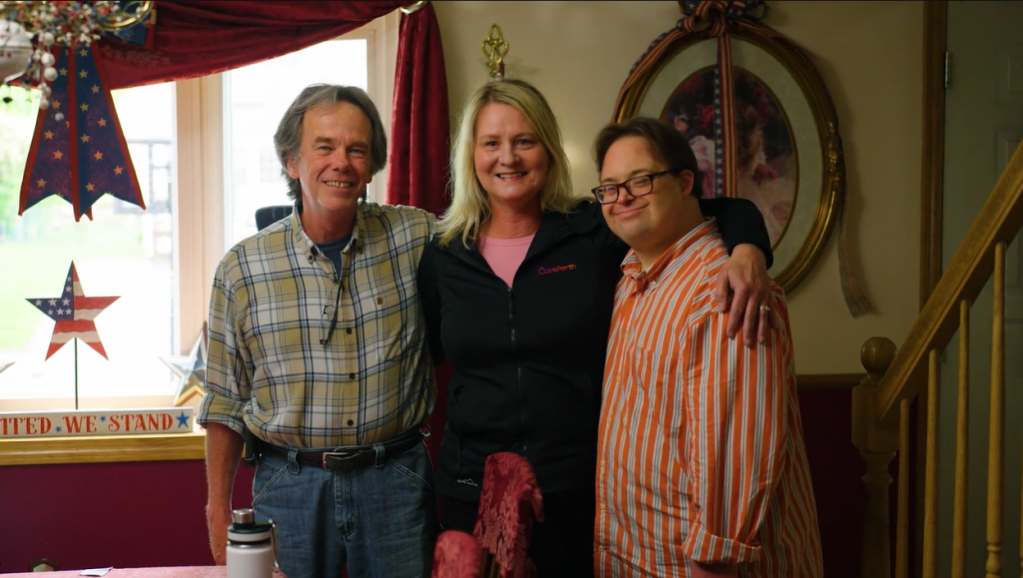
How Caregivers Can Help a Loved One Navigate Grief Following an Alzheimer’s or Dementia Diagnosis
When a loved one is diagnosed with dementia or Alzheimer’s disease, there is a wave of emotions they experience, but grief is often front and center. Grief for the life they may have lived without the disease, anticipatory grief, sadness, anxiety and much more. Regardless of your role in the caregiving journey, your loved one can use support and guidance through these feelings, and there are many ways you can help.
Caregiver Feelings Following a Diagnosis
One of the initial reactions of any caregiver is questioning what to do after a dementia diagnosis. To be sure, a diagnosis of dementia or Alzheimer’s is serious, and your loved one may experience a full range of emotions. If your loved one is early in their journey, grief is a common reaction. Plus, there may be anxiety and distress with the acknowledgment of symptoms, learning of the disease progression, and anticipating what may happen to them in the future (known as anticipatory grief) is common.
As early as possible after diagnosis, have open and honest conversations with your loved one about their emotions and how they can affect their mental and physical health. The most important thing to emphasize with your loved one is that these are normal feelings and very common. It’s vital to validate their feelings and affirm they are not alone.
Coping After a Loved One’s Diagnosis
First, always remember that your loved one is a person – the person you know and love. But now, they are a person living with dementia or Alzheimer’s and one who needs a caring advocate.
As such, talking with your loved one’s healthcare team, if they’re open to including you, can help lay a foundation for truly understanding the disease and its diagnosis. Finding reputable sources to learn about the stages of Alzheimer’s and dementia also can help reduce early anxiety and depression.
Education goes a long way in breaking the stigma around dementia and Alzheimer’s diagnoses. For example, people with a diagnosis of Alzheimer’s or dementia may see their friends and family members withdraw due to their own misunderstanding of the conditions and out of fear of the changes they may see. When loved ones have the facts, assumptions and unfounded fears may lessen.
In addition to being there to support your loved one through every part of their journey, work with them to find communities and support groups to help provide encouragement and comfort. In fact, these communities can be excellent support for dementia caregivers as well.
“In the face of a memory loss diagnosis, grief can be overwhelming,” said Evelyn Wooster, Careforth RN care manager. “Remember that you, as a caregiver, are not alone. Nor is your loved one. Seek support from others who understand. Cherish the small moments of clarity and find joy in small triumphs. Take care of yourself too – rest, seek therapy and lean on loved ones.”
How Caregivers Can Plan for the Future
When you’re familiar with the stages of dementia and Alzheimer’s, it can be easier for you and your loved one to recognize changes and address them early with medical and support teams. After a diagnosis of dementia, put in place plans to assist your loved one as they progress. From simple steps like setting up automatic bill pay to more involved processes such as putting financial and legal affairs in order, lower stress by preparing and planning ahead.
If your loved one’s condition progresses to the point where they need elevated levels of professional care such as administration of medication, various therapies, wound care and assistance eating or drinking, consider your care options such as a senior living facility or hospice.
While your role as a caregiver is vital, it’s also crucial that you care for yourself, helping to prevent burnout and overwhelming emotional stress. Just as your loved one should rely on resources such as support groups to find supportive communities, you should consider those tools for yourself as well.
“We understand how difficult it is for families to be able to provide great care for their loved ones with a complex diagnosis of dementia or memory loss and at the same time practice self-care,” said Michell Yepes, Careforth care manager. “The physical and emotional demands of caring for a loved one with a serious illness can be exhausting and even lead to burnout. As part of my monthly visit with our caregivers, I take time to ensure they receive the appropriate learning resources to be able to understand their loved one’s needs and communicate changes they might experience while going through memory loss.”
If providing day-to-day care, know the types of resources available to help keep your loved one safe while giving you a break – meal delivery, visiting nurses and more. If providing care for your loved one is resulting in you neglecting your own basic health, don’t be embarrassed to ask for help. Eating nourishing foods, getting daily exercise, and finding some time for yourself are basic needs and caregiver respite is imperative.
Wherever you and your loved one are on the journey from dementia or Alzheimer’s diagnosis through the progression of the condition, stay educated, do your best to provide care and support for your loved one and never forget to care for yourself. Contact us for more information.
More insights like this:
-

Challenges Caregivers Face in Personal Relationships
Read more: Challenges Caregivers Face in Personal RelationshipsEveryone has different expectations for the challenges that a caregiving role might bring, such as the difficulty of managing a loved one’s medical needs or transporting them to appointments. But there are social impacts for caregivers as well. Caregiving goes beyond helping a loved one with health and wellness at home; it can…
-

Caring For Your Child With Disabilities
Read more: Caring For Your Child With DisabilitiesAccording to AARP’s Caregiving in the U.S. 2020 Report, 14.1 million caregivers provide care for children ages 0-17. In addition, one-in-ten parents in the U.S. provide over two and a half hours of unpaid care a day to an adult child. That’s a lot of care. A lot of dedication. And a lot…
